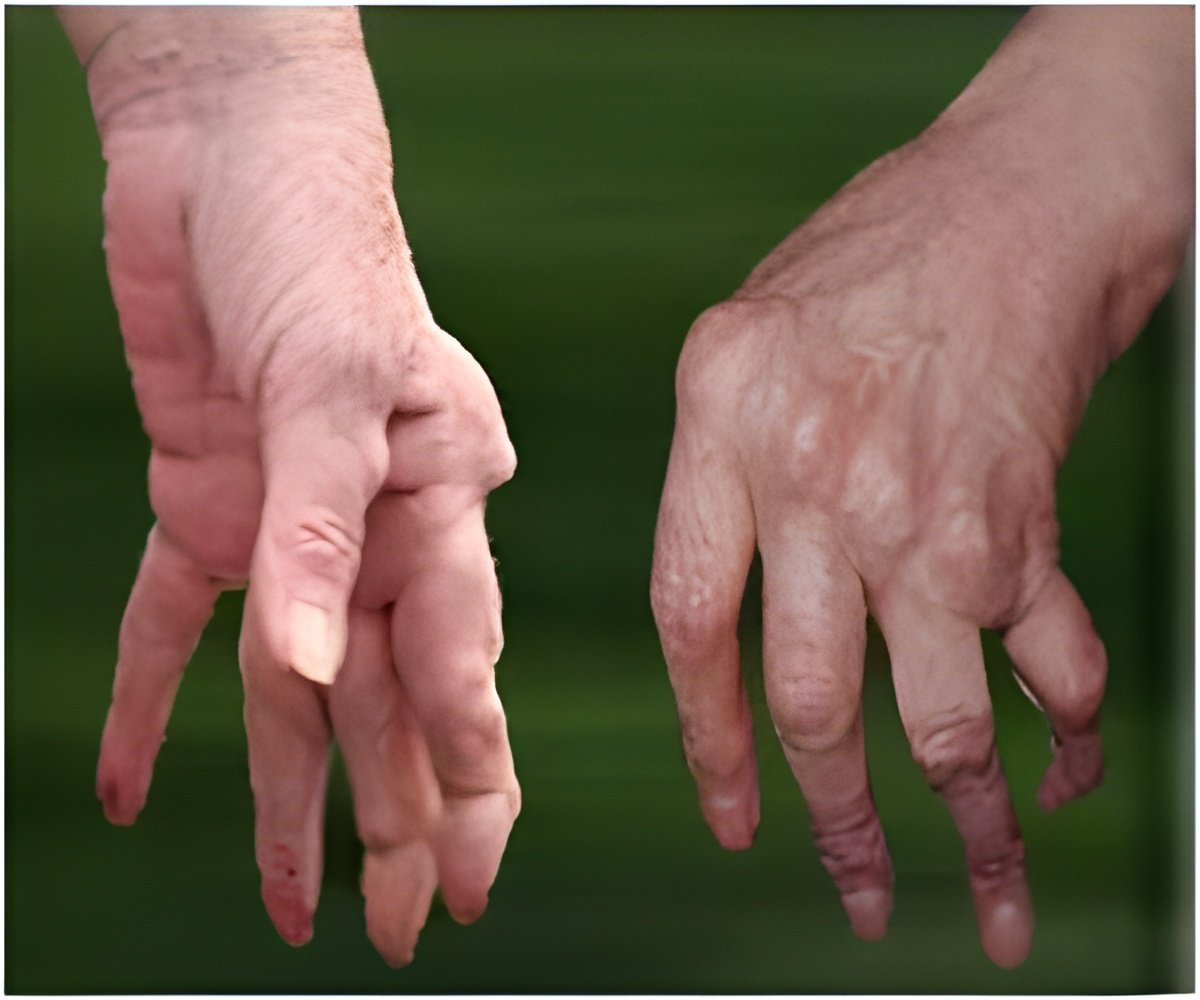
Results of the German study of 8,908 patients demonstrated that the mortality rate decreased from 20.6 in those treated with non-biologic DMARDS to 10.6 in those exposed to anti-tumour necrosis factor (anti-TNFs) drugs, and likewise to 12.7 for those treated with rituximab.
Further analyses showed that men and women with RA had a shortened life expectancy of 2.2 years compared to the general population. Patients with a mean DAS28* below 4.1 had normal life expectancies whereas of patients with a mean DAS28 score of >4.1 women died 5.6 years earlier than age and sex matched subjects from the general population, whilst males died 4.8 years earlier.
"It is well-known that patients with RA have lower life expectancies than the general population," said Dr. Joachim Listing, German Rheumatism Research Centre Berlin, Germany and lead study author. "Our study demonstrates the positive impact that biologic treatment can have on patient's life expectancy.
According to the researchers, a significant association between disease activity and mortality risk was observed by multivariate Cox regression within the patient sample. Cox proportional hazard regression was applied to investigate the influence of the time varying DAS28 scores, functional capacity and treatments on mortality risk after adjustment for age, sex, eight co-morbid conditions and smoking. The primary analysis was based on a risk window approach assuming the patient was exposed to biologic DMARD treatment up to six months (12 months for rituximab) after the last dose. Mean observation time was 3.5 years.
Results of a separate study show that early remission is associated to better overall survival.
Advertisement
Abstract Number: OP0047, OP0126
Advertisement
Source-Eurekalert









